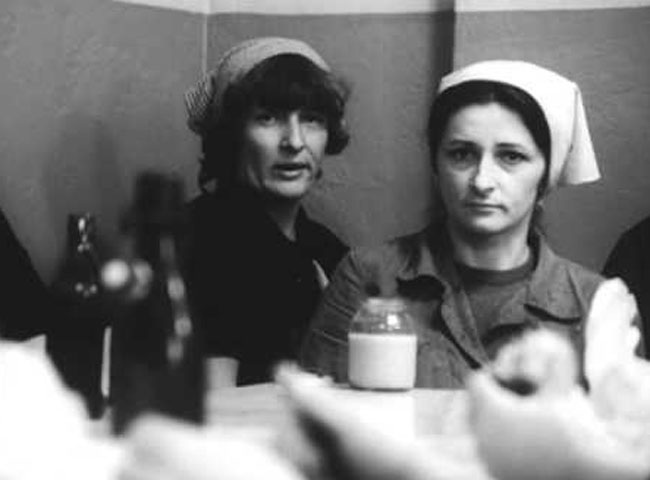
Irena Kamieńska
- Écriture
- Réalisation
Pas de biographie en français disponible
Irena Kamieńska was born in 1928 in Lyszkowice, Lódzkie, Poland. One of the Łódź Film School graduates from 1967, she valued those documentary films where the director’s vision underpinned the representation of registered events. She tended to start her projects by identifying a social problem and then looked for people and places to illustrate it.
At school, her personalised approach to factual filmmaking came to the attention of her mentor Jerzy Bossak (1910-1989), at the time the head of the Film Office at the Documentary Film Studio in Warsaw. Kamieńska started working for him even before receiving her diploma from Łódź. In 1967, after her first success at Cracow Film Festival with Good Morning, Children/Dzień dobry dzieci (1966), it was clear that Kamieńska opted for keeping a low profile. Her personality matched the character of her staple film genre.
Orientated to serve others, by directing documentary films she fulfilled her self-ascribed mission to be a harbinger of truth. Her career in film was one of the longest and most prosperous among Polish female documentarians. In the 1970s, she also made narrative films, but her adventure with screen fiction proved to be short-lived. Having completed The Sign/Znak (1973) and Klara and Angelika/Klara i Angelika (1976) for Polish television, she returned to documentary films and never left them again.
Kamieńska won the Cracow Film Festival Grand Prix on three separate occasions, as well as several other international film trophies. When asked why she made documentaries, she replied: "I want to tell the story of my country and the times I live in, to present the people and problems of contemporary life".
She maintained her dedication to the truth and the dignity of her filmed subjects, even if her films were sometimes shut off for political reasons, as was the case with Three Collections (1974). This television documentary showed the circumstances of a heavy industry engineer, whose patents were never implemented in Poland because they were too cost-effective.
Kamieńska’s idealistic approach to the documentary was best evident in her choice of film subjects. Almost all of her on-screen stories evolved around those who occupied the periphery of social hierarchies because of their personal attributes, circumstances or convictions that were in conflict with the surrounding collective.[...]
Kamieńska never offered solutions. She rather pointed to problems, encouraging her audience to ponder over human cruelty, emotional coldness, indifference, or lack of compassion. This strategy became most obvious in Workwomen/Robotnice (1981), which disclosed the inhumane working conditions of female employees at a peripheral textile factory. Workwomen won Kamieńska another Grand Prix in Cracow, as well an award from the Ministry of Culture. The film was also successful in Oberhausen. Her other documentaries about women further explored the disparity between personal desires and the social reality of the Polish female. [...]
Her last film before the collapse of Communism, Day After Day/Dzień za dniem (1988) again won numerous festival trophies, including those at Cracow, Paris, Tampere and Oberhausen. It was a collection of observational shots narrated off-screen by one of two sisters who for almost 30 years had worked on a building site in Katowice. Kamieńska’s empathetic depiction of the two disillusioned and exhausted older women became a metaphor for the impact the regime had on the country’s population.[...]
She died in 2016 in Poland.
(Source : Women & Film Under Communism)

